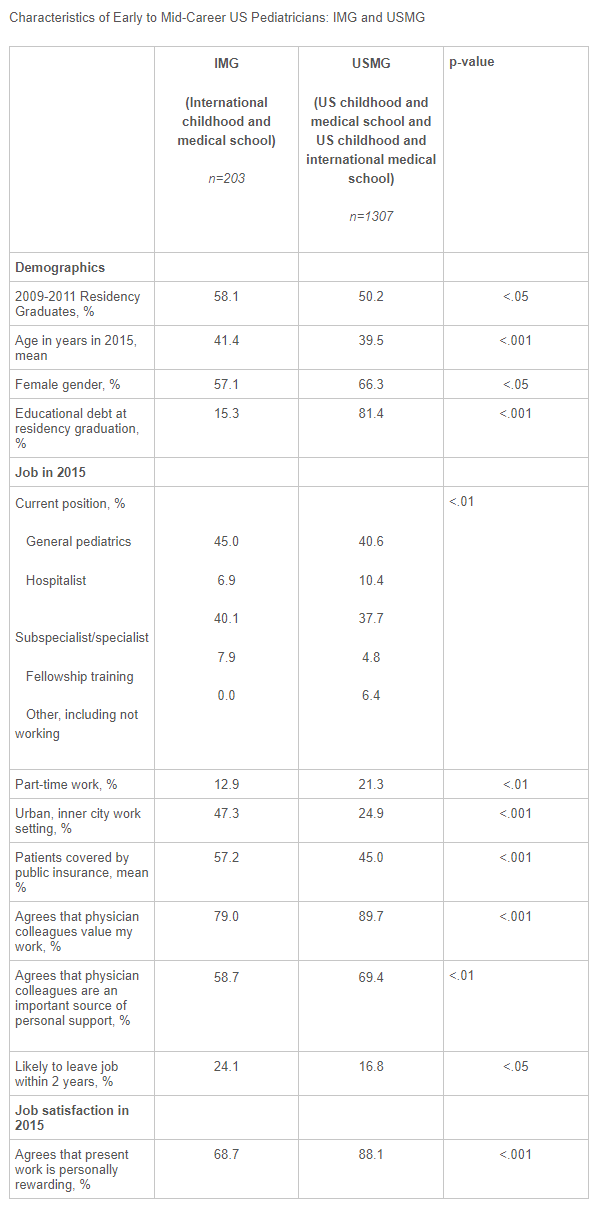Shesha K Katakam, MD, MPH and Mary Pat Frintner, MSPH.
Presented at the 2017 Pediatric Academic Societies Annual Meeting.
Background: International medical school graduates (IMG) represent about one-fourth of recent US pediatric residents but little is known about their post-residency work experiences and satisfaction.
Objective: To examine job experiences and satisfaction of pediatricians who are IMG and working in the US.
Methods: National, weighted 2015 data from the AAP Pediatrician Life and Career Experience Study (PLACES), a longitudinal study of early career pediatricians with 2 cohorts: 1) 4-6 years post-residency; 2) 11-13 years post-residency. Work characteristics and job satisfaction in 2015 were compared for pediatricians categorized by childhood and medical school location: a) IMG (international childhood and medical school); b) USMG (US medical school; also includes IMG with US childhood). Two multivariable logistic regression models examined the independent effects of IMG on 1) likelihood of leaving job in next 2 years and 2) job satisfaction, while controlling for demographic and job characteristics.
Results: 1510 of 1801 PLACES participants are included in the analyses (completed the 2015 survey and answered background questions). 13% had international childhood and medical school locations (IMG). Compared to USMG, IMG were more likely to be older, male, and have no educational debt at residency graduation (table). They were also more likely to work full-time, work in an urban, inner city setting, and care for patients with public insurance. They were less likely to agree that their physician colleagues value their work or that they are an important source of personal support.
Almost one-fourth of IMG and 17% of USMG reported being moderately or very likely to leave their current job within 2 years, p<.05. Fewer IMG (69%) than USMG (88%) agreed that their present work is personally rewarding. In multivariable analysis, controlling for demographic and job characteristics, IMG were no more likely than USMG to plan to leave their current job (aOR=1.04; 95% CI=.61-1.76) but were less likely to feel that their work is personally rewarding (aOR=.31, 95% CI=.18-.54).
Conclusion: More than one in 10 early to mid-career pediatricians working in the US grew up and attended medical school outside the US. Many of these pediatricians work in the inner-city with patients covered by public insurance. Strong majorities of all PLACES pediatricians report that their present work is personally rewarding, but IMG tend to be less satisfied than their USMG colleagues. Further research is needed to evaluate the factors that affect job and personal satisfaction among IMGs.

Last Updated
10/18/2021
Source
American Academy of Pediatrics